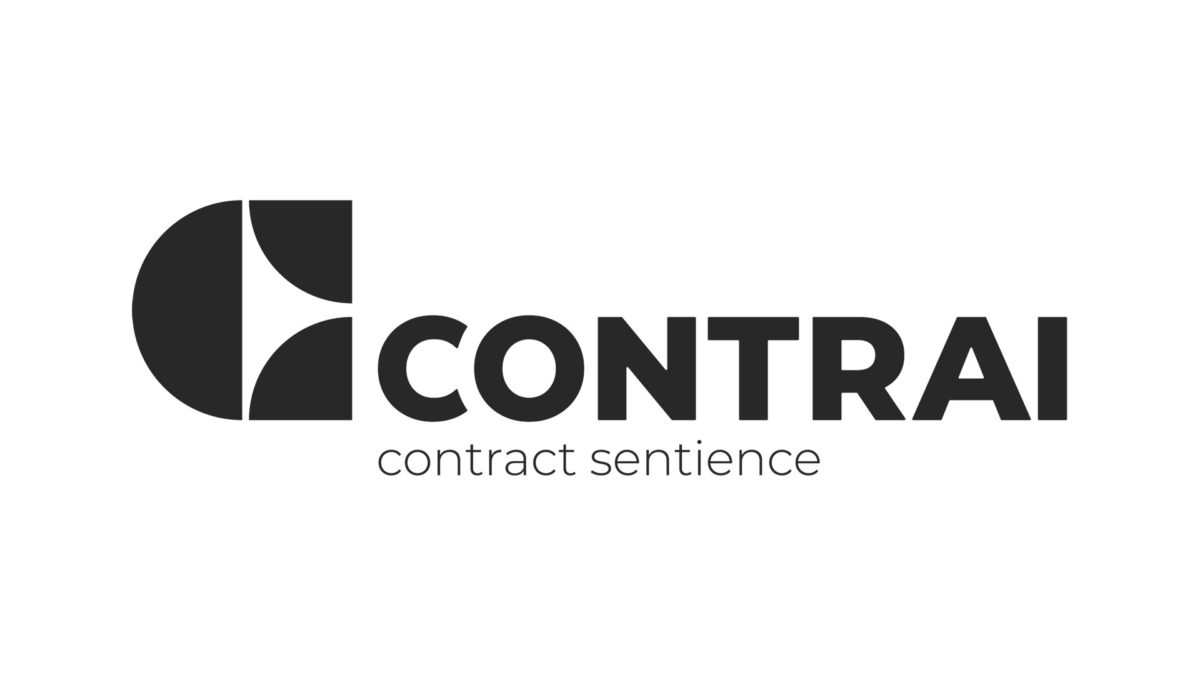
Public preview of ContrAI: the Moorcrofts contract automation suite
Moorcrofts is running tech preview sessions of ContrAI, its newly developed contract drafting, negotiation and management suite.
For the past 18 months, Moorcrofts in partnership with Oxford Brookes University has been running the project to develop the software after successfully securing the six-figure grant from Innovate UK and Research England. The primary purpose of the application, now called ContrAI, is to make the contracting process more efficient with the aim to help legal teams and organisations spend more time doing what they have been trained (and want) to do, and less time doing frustrating administrative or non-legal tasks.
This will be achieved in a number of ways. First, ContrAI is a modular application and clients will be able to choose which modules they need. The main features which are currently being built into ContrAI include:
- Integrated Contract Database
- Intelligent Drafting Environment (IDE)
- Approvals and Negotiations Tool
- AI and IA Features
All the modules will work together, so the more modules clients use the better the experience and the more efficient the contracting process will become.
Andrew Katz, Moorcrofts Joint Managing Partner and Head of the Technology Team, said:
“We are very excited about how the project is developing and the opportunity the application will provide law firms to create contracts which are more affordable for SMEs. As the project progresses, the roadmap is likely to change and develop. We are looking for organisations to test ContrAI and help us develop the roadmap.”
Moorcrofts will be running technology demos and workshops towards the end of September and beginning of October, which are free and open to all. If you would like to get involved, book a technology demo or if you have any questions, then please get in touch with Moorcrofts by emailing events@contrai.io.
Details about the main features
Businesses typically have a wide range of contracts: supply contracts, client contracts and sales contracts.
This database holds information on executed contracts, as well as contracts that are required (but not started) or in negotiation. Initially the database will have to be populated manually (for both historic and newly executed contracts), but the team are working on technology which will enable it to self-populate, extracting the relevant information automatically from executed contracts. So, what will it do? As well as holding useful information about the contract such as, how much it is worth, invoicing period, renewal, products/services to be delivered, unique terms and expiry date, it will also ensure that the people in the organisation that need this information will have easy at-a-glance access to it. For example, when a contract is executed, the database will inform the billing team how much needs to be billed and when; the service delivery team what needs to be delivered; and when the time comes, the account manager and renewals team when a contract is expiring. In addition to this, there will be a rich suite of reporting tools to make it easy to extract and present the information held in the database. The database will make the process of recording the important information held in a contract easier, more consistent and less prone to error.
The team is also working on an integration with popular CRM software, initially Salesforce. Many of Moorcrofts clients use Salesforce to track opportunities and ultimately contracts entered into with client contracts. The integration will allow the database to automatically extract the contract details from Salesforce, and give management an overview of where each contract is in its lifecycle, including the progress of negotiations.
Intelligent Drafting Environment (IDE)
Anyone that has tried to draft contracts using Word, or any other word processing application will undoubtedly know it can be a frustrating process. Numbering tends not to work very well, formatting can be tricky and easily broken, and cross-referencing and definitions can be awkward. The editor in ContrAI is built from the ground up, with one purpose – working on contracts. Everything will just work. Numbering will always be correct, formatting will be as it should, and cross referencing will work and update correctly. Definitions are something that can take up time when drafting. In ContrAI, if clients have a defined term that is not used, it will let you know. If you are using a term that has not been defined, then ContrAI will let clients know. Using the editor will mean clients will be using less time wrestling with a word processor and more time doing what they trained to do.
If you’ve been involved with software development, you’ll be familiar with the concept of an “Integrated Development Environment”. An IDE is a super-smart text editor for writing software, which understands the syntax of the language you are writing the software in, and can save time and minimise errors by keeping track of variables, making sure you don’t use functions that haven’t been defined, and keeping track of punctuation and formatting. The ContrAI Editor takes the same approach: we see it as an IDE for contract drafting.
Approvals and Negotiations Tool
Connected to the editor, ContraAI will also assist with approvals and negotiations. A client may request 90-day payment terms, for example, and someone in sales might be tempted to give way on that to close the sale quickly. The approvals mechanism allows you to set different categories of changes which can be approved by different people: for example, the sales executive may be able to approve terms up to 30 days, the sales manager 45 days, and any extension over that would have to be approved by the CFO. These approvals can be set for any number of criteria within the contract, and will ensure that you record and control all decisions on contract concessions, and don’t develop a race to the bottom where over time your standard contract becomes very easy to get signed, but extremely risky, as it gathers all of the clauses favourable to the customer which have been conceded to get the contract over the line.
Approvals will be very granular, and can be set for the entire contract, down to individual clauses, and will handle multiple approvers for the same, or different, sections, if required. It will be possible to complete the entire negotiating process within ContrAI. Each “side” will be able to view the draft contract, propose amendments and accept them, all without exchanging multiple copies of documents by email. Once the contract is agreed and approved, it can be rendered and distributed as a PDF, or sent straight for e-signing. The approvals and negotiating modules will reduce the overhead of negotiating and approving contracts. Everyone will be working on the correct version, and you will be confident that the approvals are made and recorded.
AI and IA features
The most cutting-edge feature we are developing is the automatic contract review. The team are working with the Ethical AI Institute in Oxford Brookes University to develop an algorithm that will be able to review a contract, and give you an overview of the riskiest sections. You will tell ContrAI what you risk appetite is; how much liability will you accept, will you offer an indemnity, what clauses are essential, what clauses are not acceptable, etc. ContrAI will then analyse the contract and give you a RAG status. Green will be the sections which fall within your acceptable limits. Amber will be the sections you need to review either because they might not quite fit with your requirements, or ContrAI thinks you should revisit because they may have unintended risk consequences. Red will be the showstoppers. These are the sections that mean you won’t sign this contract. We call this Intelligent Augmentation: using AI to augment and assist humans and believe it will dramatically reduce the time need to review a new contract, or even proposed amendments to an existing known contract.
Behind the Scenes
There’s also a lot of exciting stuff going on behind the scenes: we are leveraging and bringing together some important work which has already been done by organisations like Common Accord and MIT, and we intend to develop and publish a contract coding schema, partly based on that work, that will allow contracts developed with ContrAI to be interoperable with other systems.
More in Solicitors

The Oxford Accelerator
Oxfordshire features a rapidly growing innovation ecosystem. We organised a gathering of investors, founders, entrepreneurs and university bodies to discuss investment trends/opportunities.

Part 4 of the ‘Fast growth secrets’ series: How to embed customer...
Following our roundtable discussion in Manchester, we explore how fast growth tech businesses can embed the customer and people experience for competitive advantage.

Part 3 of the ‘Fast growth secrets’ series: How to embed ESG...
We held a roundtable discussion to explore the fast-growth secrets of technology businesses and why they should embed ESG into the DNA of their operations.
From this author

Andrew Katz receives prestigious Law and Policy Award at OpenUK Awards...
Moorcrofts Head of Tech and IP and CEO of Orcro Limited, Andrew Katz received the esteemed Law and Policy category award at the fourth OpenUK Awards Gala Dinner and Awards Ceremony on 20 November 2023, held at the House of Lords. The OpenUK Awards celebrate outstanding contributions within the Open Technology ecosystem across various sectors, […]

Exit Planning unveiled: strategies, preparation and alternative structures for a smooth...
Are you considering selling your business within the next five years?

Moorcrofts advises LPC Construction and Halo Hire on a restructure and...
Moorcrofts LLP has advised the continuing shareholders of LPC Construction Limited (“LPC”) and Halo Hire Limited (“Halo”) on a restructuring and partial exit.

